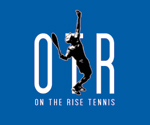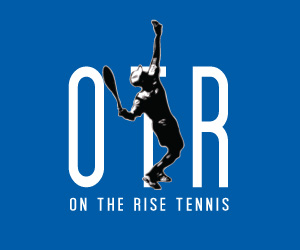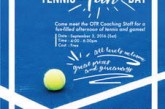

I recently read Andre Agassi’s book Open. I really enjoyed it. I felt it was both honest and exciting. It was also somewhat nostalgic for me. It took me back to when I was a kid growing up here in Hong Kong trying to become a tennis player myself. I remember the pressure I felt, even as a 10 year old, to win matches and tournaments. Those feelings were not pleasant then nor are they now when I am reminded every so often how it feels to have the weight of the world on your shoulders and all sorts of expectations and fears running through your head.
You’re probably wondering why you’re reading this, or why I’m writing this. Who cares about some tennis coach who never made it! The point is I believe I have made it. I now love this game, and I play it for the right reasons not for the wrong ones anymore. I’m writing this because I wish somebody had reminded me when I was 10 years old that tennis is a great game and that whether I lost or won, it would never change the person I was. I wish someone had pushed me to develop my game and become the best player I could possibly become, rather than push me to win every match at the cost of improving. I look around these days and I listen to kids telling me they love tennis. I ask them why they love tennis and I’m not convinced with their answers – ‘Because I’m good at it, I guess,’ or ‘it’s fun when you win!’ I love Graeme’s response to these kids – ‘If I let you play my grandma every day for a year and you beat her 6-0, 6-0 day in day out, would you be happy?’ The kid usually turns red and says no at this point. ‘So, it’s not just winning that you enjoy then?’ ‘I guess not.’ We have come to think that winning is everything, and we define ourselves on our wins and losses. I coach ladies who become depressed every time they lose a match; I coach kids that want to give up because they lost to a kid they should have beaten; I coach kids who have parents that send me distressed messages to discuss emergency plans for their kids because their backhands fell apart in a match.
Having just read Sampras’ book as well, I believe I noticed something that really made perfect sense to me “something that was very different to Agassi’s book. He believed one of his greatest assets as a tennis player, was his ability to keep his nerve. He got nervous in matches but never really choked because he was always more concerned about playing the right kind of tennis and developing himself as a person and a player, rather than winning every single match. He felt that as a kid, he was able to see the bigger picture and this helped him become the champion he became. When he changed to a single handed backhand, he couldn’t win a match. He never stopped developing his game though, and in the end he created a backhand that would help him win 7 Wimbledon titles and a total of 14 grand slams. This process rather than result orientated approach helps a person focus on something they can control. Even though you may think you can control whether you win or lose, you cannot. You can control your effort and attitude, and you can always try to play correct tennis, or the tennis that is correct for your game, but you just can’t control the outcomes of each match. If you play unbelievable and lose, this does not mean you’re not improving. Maybe your opponent was just too good, or perhaps he had a lucky day. If you play awful tennis and you win, this also doesn’t mean you’re improving. You probably aren’t, and the win sometimes blinkers you from seeing the path you should be taking. In Hong Kong, the biggest problems we see as coaches, is that kids are too scared to improve. Either they put too much pressure on themselves to win, or their parents or even coaches put pressure on them to win. This pressure prevents them from working on pivotal components of their game, limiting their improvement and leaving them feeling as though they are on a rollercoaster ride where wins and losses define their happiness levels. I say this because I believe I was exactly the same. At 13 I won both the under 14 and 18 nationals and beat the American number 1. After that year, my tennis stayed the same. I was focusing on winning matches rather than developing a game, and eventually the other kids started over powering me with bigger serves and better volleys. They were not afraid of losing because they hadn’t been winning before, and they therefore adopted a no fear approach that helped them reach their potential. I was too scared to go for my shots, to move forwards, to be aggressive, because I didn’t want to lose. In the end, I lost more than a few matches. I lost my motivation to pursue my childhood dreams.
You have received this article because you are either a tennis player, or a parent of a tennis player, that is going through or may go through these feelings now or in the future. This is a tough sport, a sport that requires an enormous amount of respect, commitment and dedication. It is a sport we love because it challenges us mentally as well as physically. It is a sport that, if we approach correctly, can become a friend for life. Focus less on results and less on winning and losing. Develop your game. Become the best that you can possibly become and then, if you don’t make it, at least you will have no regrets the way I sometimes do. Success is a journey, not a destination.
Jason Sankey






